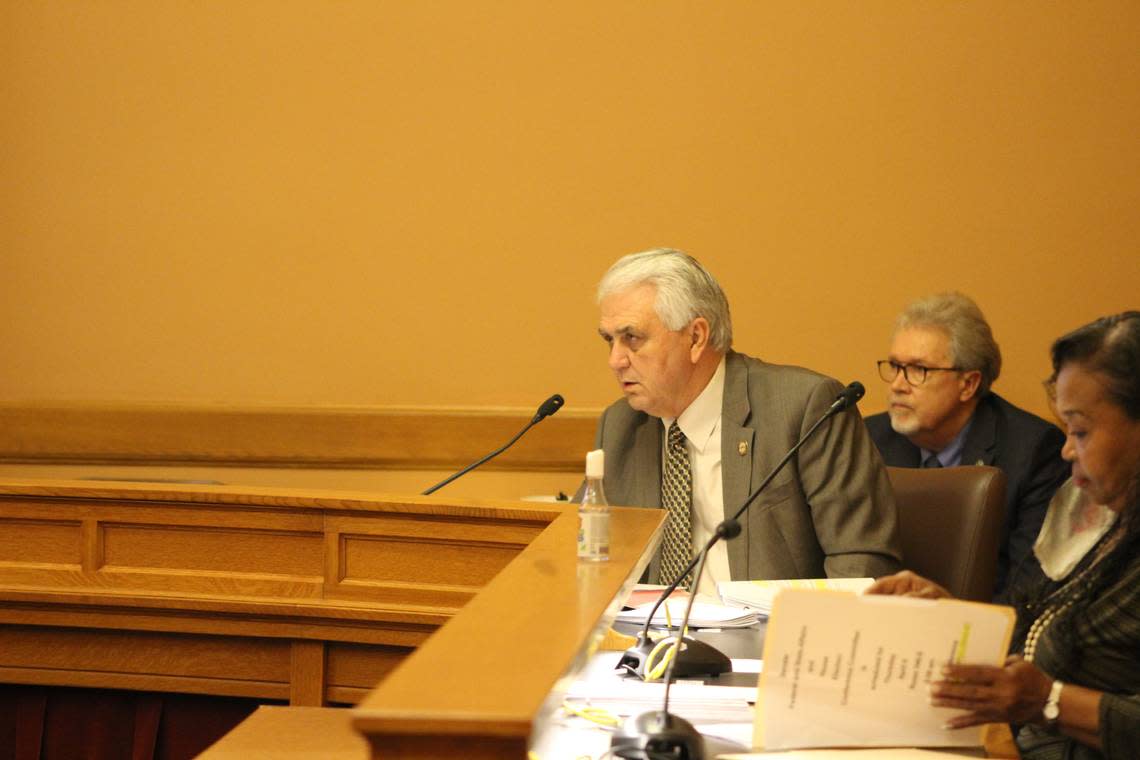Kansas lawmakers act to limit mail voting, executive and judicial power over elections

Two bills that place new limits on advance voting and strip some authority over elections away from the executive and judicial branches are heading to Gov. Laura Kelly’s desk.
The Kansas bills, HB 2183 and 2332, come as states nationwide advance changes to election law in response to unfounded reports of voter fraud during the 2020 election.
In Washington, the slender Democratic majority in the U.S. House passed legislation in early March to expand mail-in voting nationwide and establish same-day registration for federal elections.
The changes come even though the Kansas Secretary of State said that Kansas had a fair, secure election last year. Proponents say they are seeking to maintain that and prevent future issues.
House Bill 2332, dealing with executive and judicial power, passed 83-38 in the House and 2183 dealing with advance voting passed 80 to 42. The Senate passed both measures 27 to 8.
Republican lawmakers argue these are simple measures meant to ensure fair and secure elections.
“It’s electioneering, only it’s happening in someone’s living room,” said Rep. Pat Procter, a Fort Leavenworth Republican. “If we can’t be sure that the ballots cast at home have the same rules applied to them as the ballots cast at the election box then we have destroyed the credibility of the election.”
But Democrats, pointing to the lack of evidence of voter fraud and security issues, say the laws needlessly make voting harder for Kansans.
“We should not make it illegal to be a good neighbor,” said Rep. Brett Parker, an Overland Park Democrat. “It should not be the business of this chamber to make it more difficult to vote or to make it a crime to help your neighbors.
“Everything you’re worried about that sounds scary is already a felony.”
The bills were changed slightly from the versions approved in the Senate last week. Most notably, a panel of House and Senate members softened a measure that made returning more than five advance ballots on behalf of other Kansans a felony.
In response to concerns that the bill would punish good neighbors and make it harder for the elderly and disabled to vote, the panel amended the bill to allow for 10 ballots to be returned and softened the penalty to a class B misdemeanor.
“Some people thought that was not enough; some people thought they really shouldn’t have to carry any so I think the movement from five to 10 is going to help everybody,” said Assistant Senate Majority Leader Larry Alley.
House Bill 2332 prohibits the executive and judicial branches of government from creating election laws. It also prevents the Secretary of State from entering into consent decrees with a court without legislative approval.
The measures follow two pivotal decisions in the 2020 elections.
One was the Pennsylvania Supreme Court’s decision to extend the due date for mail ballots. The other was a consent decree entered into by the Georgia secretary of state to establish standards for checking signatures on ballots. A lawsuit alleged that ballots of Black voters were being disproportionately disqualified.
The bill also creates disclosure requirements for organizations distributing information about mail-in voting and mandates the Secretary of State to maintain residential addresses in addition to mail addresses of voters. It also creates new election tampering crimes.
The residential address requirements follow an election fraud charge brought against former U.S. Rep. Steve Watkins who listed his home address as a UPS store.
House Bill 2183 focuses largely on mail-in voting. It limits who is permitted to return a mail-in ballot for another person and makes it a misdemeanor for one person to return more than 10 mail-in ballots. The measure also requires the signature on a mail ballot to match the signature election officials have on file, creating a potential for votes to be discarded, and bans the Secretary of State from extending mail-in vote deadlines.
The bill also makes it illegal to backdate a postmark on a ballot and bars election offices from accepting money from any entity other than the state for administering elections.

